The boomers might not say it out loud, but trust—they’re definitely stress-scrolling their bank accounts in bed. They’ll tell you they’re “fine” and that they’ve “planned for everything,” but behind that calm, cool exterior is a brain doing mental math like it’s a live episode of Jeopardy. Retirement isn’t the carefree beach vacation they imagined—it’s more like budgeting in a hurricane with a piña colada in one hand and a medical bill in the other.
They grew up with pensions and job security. Then came 401(k)s, market crashes, housing bubbles, and inflation doing backflips. Now? They’re stuck wondering if the money will last, if their adult kids will move back in (again), or if they’ll end up with a roommate named Barb at a retirement complex they can’t afford. So let’s talk about it—the stuff they won’t say but definitely think about. Here are 15 financial fears boomers won’t admit out loud… but probably thought about twice today.
1. Skyrocketing Healthcare Costs

Healthcare in retirement isn’t just about the occasional doctor’s visit. It’s about managing chronic conditions, unexpected surgeries, and the ever-increasing cost of medications. A study by Fidelity Investments estimates that a retired couple will need around $275,000 to cover healthcare expenses in retirement. That’s not pocket change. And the gap between what Medicare covers and what people actually need? Pretty wide, according to OpusVi, which calls this “the retirement health gap.”
Boomers are acutely aware of this looming expense. Many have already experienced the financial strain of medical bills, either personally or through caring for aging parents. The fear isn’t just about the costs themselves but about the unpredictability. One major health event can derail even the best-laid financial plans. It’s a ticking time bomb that many prefer not to discuss. Some are now shopping around for supplemental insurance like it’s a second job. And even those with decent plans worry it won’t be enough.
2. Outliving Their Savings

Boomers might chuckle at the idea of living to 100, but deep down, the thought of outlasting their nest egg keeps them up at night. With increasing life expectancies, many are realizing that their retirement funds might not stretch as far as they’d hoped. According to Protected Income, a whopping 80% of Americans fear running out of money in retirement. That’s a lot of sleepless nights.
The shift from traditional pensions to 401(k)s means that the responsibility of saving falls squarely on their shoulders. And let’s be honest, not everyone is a financial guru. The Great Recession didn’t help either, wiping out significant portions of savings for many. Now, with the cost of living on the rise, their savings are being stretched thinner than ever. It’s no wonder that the fear of outliving their money is a constant companion. Even those who “did everything right” worry their retirement calculators were a little too optimistic. And with long-term care expenses looming, that fear only multiplies.
3. Inflation Eating Away at Their Purchasing Power

Remember when a cup of coffee cost a dollar? Boomers do. And watching prices climb while their fixed incomes remain stagnant is a source of constant anxiety. Inflation doesn’t just affect daily expenses; it erodes the value of their savings, making it harder to maintain their standard of living. Fortune recently highlighted that inflation is hitting retirees harder than any other group—especially those relying on fixed monthly checks.
A report from Kiplinger highlights that inflation is one of the top concerns for retirees, with many underestimating its long-term impact. Even modest inflation rates can significantly reduce purchasing power over a 20- or 30-year retirement. For boomers, this means making tough choices: cutting back on travel, downsizing their homes, or even returning to work. Some have started couponing again—not for fun, but out of necessity. Others are watching their grocery bills balloon like it’s 1979 all over again. And COLA (cost-of-living adjustments) on Social Security? Often too little, too late.
4. The Uncertainty of Social Security
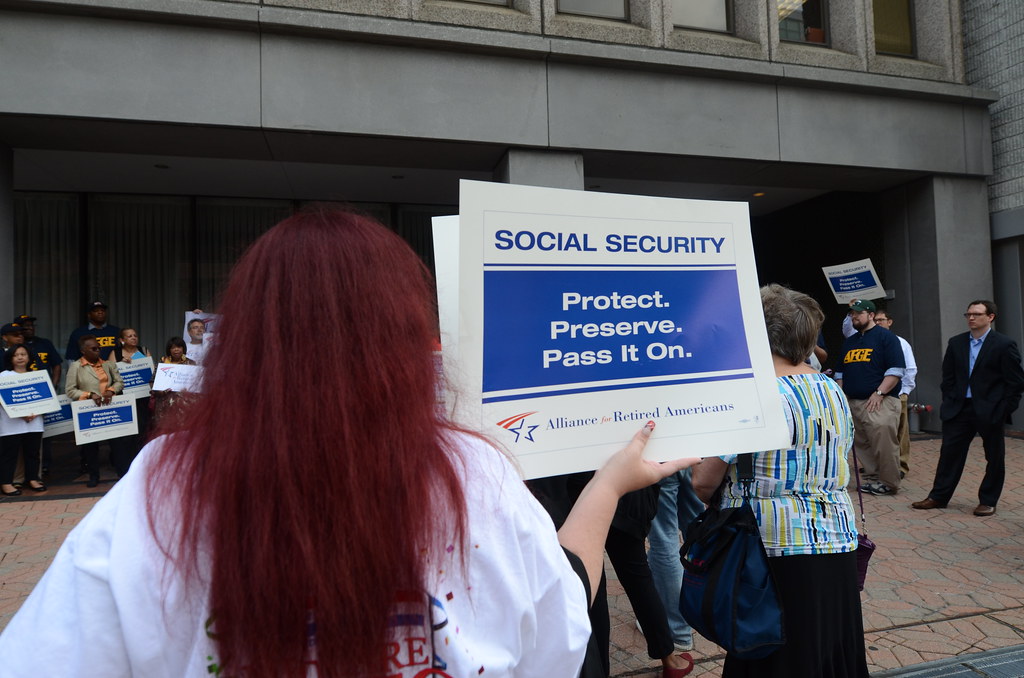
Social Security has long been the safety net for retirees, but its future is anything but certain. The Social Security Administration projects that the trust fund will be depleted by 2035, potentially leading to reduced benefits. For boomers relying heavily on these payments, that’s a terrifying prospect. As Business Insider puts it, many Americans are betting on a system that’s running on borrowed time.
A recent article from Kiplinger suggests that to compensate for potential cuts, individuals might need to save an additional $100,000. That’s a tall order for those already in retirement or nearing it. The mere thought of reduced benefits sends shivers down their spines, prompting many to adjust their spending habits and reconsider their retirement timelines. Some are even delaying retirement altogether just to hedge their bets. Others are frantically running the numbers every few months like amateur actuaries. And when politicians mention “reform,” boomers collectively flinch.
5. The Burden of Supporting Adult Children

Boomers dreamed of empty nests and peaceful retirements. Instead, many find themselves financially supporting adult children, whether due to student debt, housing costs, or job instability. CNBC found that 79% of parents are providing financial support to their adult children. It’s called “the reverse wealth transfer”—money flowing upstream instead of down.
This unexpected expense can derail retirement plans. Instead of traveling or pursuing hobbies, funds are redirected to cover their children’s needs. It’s a delicate balance between helping loved ones and ensuring their own financial security. And while they might not voice it, the strain is palpable, adding another layer to their financial worries. Some boomers quietly resent the added responsibility, even as they write another check for rent or groceries. Others feel guilt-tripped into it by economic forces they barely understand. And all of them are wondering when, exactly, that “boomerang” generation plans to bounce back.
6. Having to Go Back to Work in Retirement
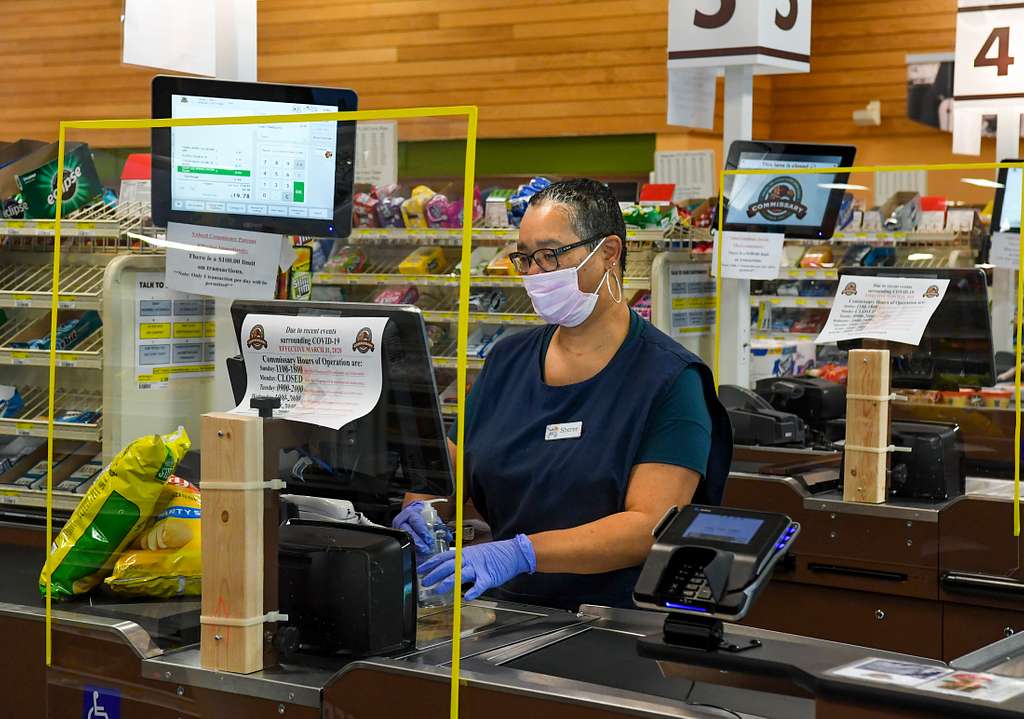
Retirement used to be the finish line. Now? It’s starting to look like a rest stop. Plenty of boomers quietly fear that the golden years will come with a name tag and a part-time shift at Home Depot. The thought of going back to work—whether it’s for financial survival or just to afford groceries—feels like failing an exam they didn’t know they were still taking.
Even the ones who say, “I’d get bored anyway,” are crossing their fingers they never actually have to. Because let’s be real, working in retirement hits different when it’s not optional. Every ache and pain suddenly has a price tag. Plus, technology has changed so fast, many boomers worry about feeling irrelevant or out of their depth in modern jobs. It’s not just the money—it’s the stress of starting over. Again. And again.
7. Becoming a Financial Burden to Their Kids
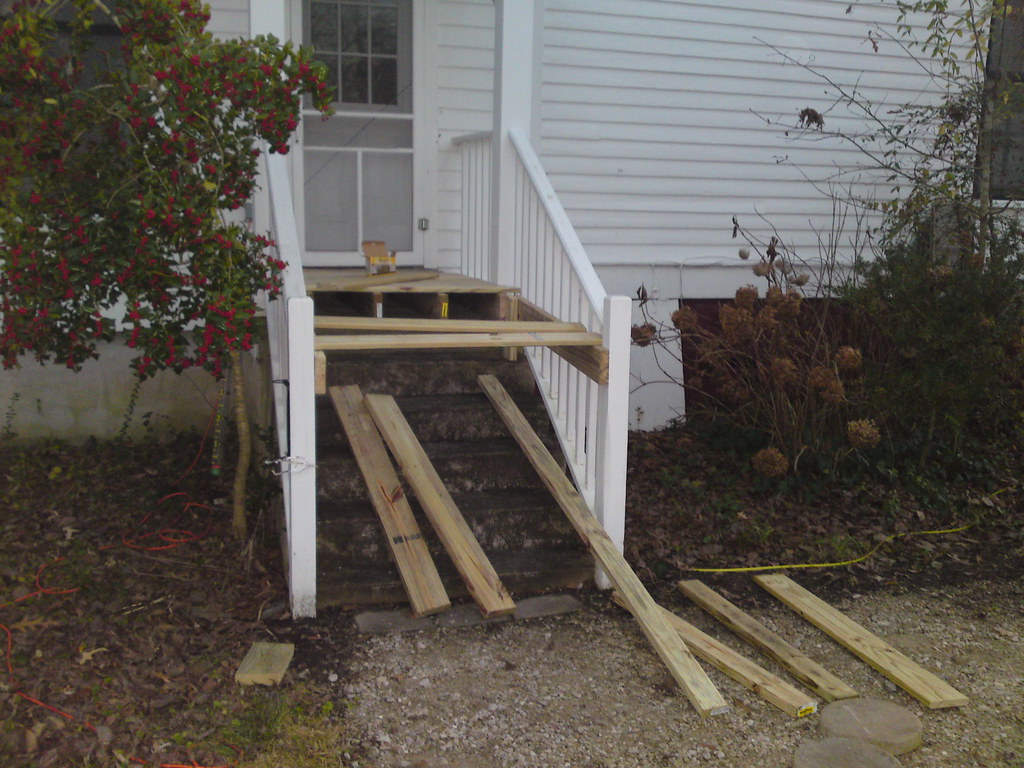
Boomers spent decades raising their kids, and the last thing they want is to be “that parent” who drains their child’s bank account just to stay afloat. The unspoken nightmare? Becoming the emotional and financial burden they once tried so hard to avoid becoming themselves. They may joke about “moving into the basement,” but the fear behind that punchline is very real.
They’ve seen friends go through it—kids taking on second jobs, fighting over who pays mom’s medical bills, or siblings going no-contact over inheritance squabbles. That’s the kind of legacy no one wants to leave. The idea that their care could cost their children opportunities or peace of mind is almost too painful to acknowledge. So they’ll pinch pennies, skip vacations, and avoid asking for help. All to preserve their independence—and their pride. Because if there’s one thing boomers fear more than debt, it’s guilt.
8. Not Leaving Behind Anything (Except Bills)

Boomers were raised on the dream of “leaving something behind”—a house, an inheritance, maybe even a vacation fund for the grandkids. But these days, many quietly fear they’ll leave behind more debt than dollars. Between mortgages, credit cards, and end-of-life care, the math isn’t always in their favor. And let’s not even start on funeral costs.
They worry their kids will find a stack of unpaid medical bills where a will should’ve been. They stress about bank accounts running dry before the paperwork gets sorted. They really don’t want to be the reason their kids have to launch a GoFundMe. Even those who managed to build some wealth fret over losing it all to late-in-life emergencies. It’s not just about pride—it’s about legacy. And for boomers, a legacy of financial strain is the ultimate heartbreak.
9. Downsizing (and What to Do With All Their Stuff)

The word “downsizing” sounds tidy and freeing—until you’re staring at 40 years of stuff and not a single child wants the dining set. Boomers are starting to realize their kids don’t want the china, the antiques, or the furniture with “character.” And that hurts. Not just emotionally, but financially too. Because all that “valuable” stuff? It’s often worth less than they thought.
There’s also the looming pressure of making it all disappear. Yard sales feel like a hassle, consignment shops are picky, and Facebook Marketplace is… chaos. Some are tempted to rent storage units and pretend it’s future-their problem. But they know that someday, someone’s going to have to deal with it. And that someone will probably be family. Boomers are feeling a deep, private panic about what to keep, what to toss, and what it all means. Because every object tells a story—and no one wants to be the only one left who remembers.
10. Rising Rent (and the Fear of Being Priced Out)

Homeownership used to be the safety net. Now, for those who never bought—or who sold and started renting—it’s starting to feel like a trap. Boomers living on fixed incomes are watching rents soar like drones at a music festival. The fear of getting priced out of their neighborhoods, cities, or even states is creeping in fast.
And the options aren’t always great. Moving in with family feels awkward. Moving somewhere cheaper might mean isolation or less access to healthcare. Some are facing landlords who “upgrade” the building just enough to jack up the rent. Others are terrified of being one rent hike away from real housing insecurity. It’s hard to enjoy your golden years when every lease renewal comes with a side of dread. And no one wants to be 75 and Googling “affordable senior roommate finder.”
11. Divorce in Retirement

Gray divorce is trending—and boomers are both fascinated and terrified. The idea of starting over in your 60s or 70s might sound liberating in theory… until you factor in the cost of two separate households, divided assets, and solo retirement planning. A breakup at that stage isn’t just emotionally hard—it can be financially catastrophic.
Even couples who seem solid feel the tension when they’re suddenly spending all their time together after retirement. And the stakes are high: there’s less time to recover financially, and fewer options to rebuild wealth. Some stay together out of financial convenience, not love, which is its own kind of heartbreak. Others jump ship and then realize how much harder it is to afford life solo. There’s a quiet anxiety here, even in the happiest of marriages. Because no one wants to be the one left re-learning how to budget on half a Social Security check.
12. Getting Scammed

Boomers don’t love the stereotype that they’re the easiest targets for scams… mostly because there’s some truth to it. From “grandkid in trouble” calls to suspicious Medicare emails, scams are getting smarter and scarier. And boomers worry they’ll be too trusting, too tired, or too distracted to catch the red flags in time.
Even the most tech-savvy retirees know that one wrong click can drain an account or ruin credit. There’s shame in getting scammed—so much that many don’t even report it. They worry about being judged, pitied, or worse, having their independence questioned by their kids. The fear isn’t just about the money—it’s about the humiliation. About being seen as “slipping.” And for a generation raised on self-reliance, that’s a gut punch they’d rather not risk.
13. Not Being Able to Afford Aging in Place
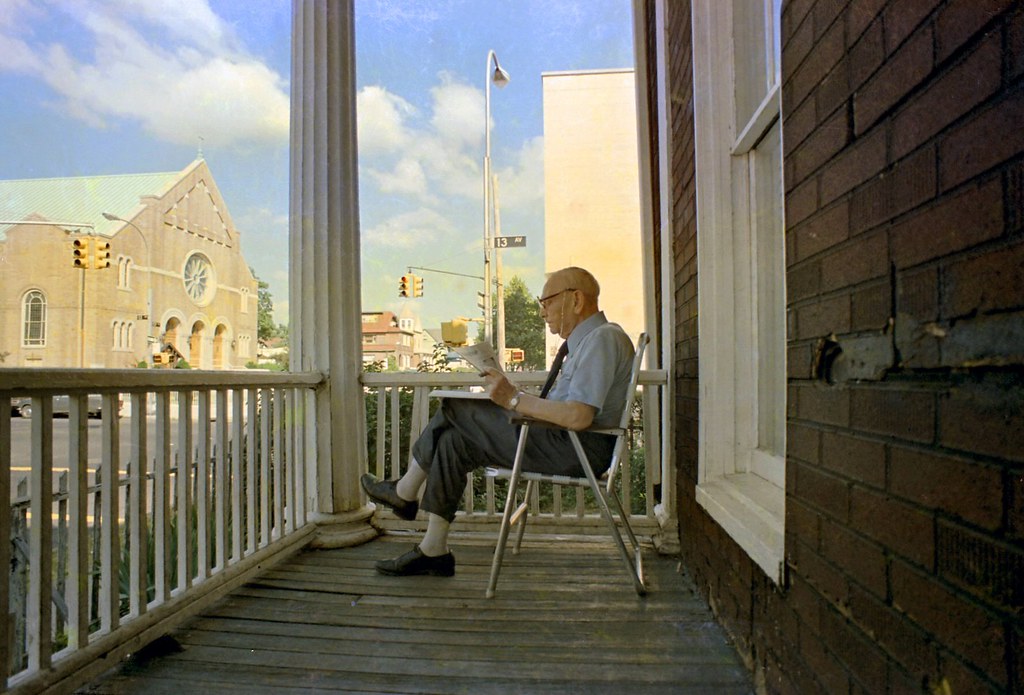
Boomers love their homes—down to the weird bathroom tile and the 1994 light fixtures. But those charming stairs? That narrow hallway? Suddenly, they’re seeing the hazards instead of the history. Aging in place sounds like the dream… until the reality of retrofitting, remodeling, and hiring in-home help hits.
Installing ramps, grab bars, stair lifts, and walk-in tubs isn’t cheap. And unless they planned for it, the cost can be overwhelming. Assisted living isn’t necessarily the fallback—it’s expensive and often not what they want. But the alternative (nursing homes with shared rooms and bad lighting) isn’t exactly a vibe either. Many boomers worry they’ll have to move before they’re ready, simply because they can’t afford to stay. It’s a heartbreaking twist on the very independence they worked their whole lives to protect.
14. Unexpected Big Expenses
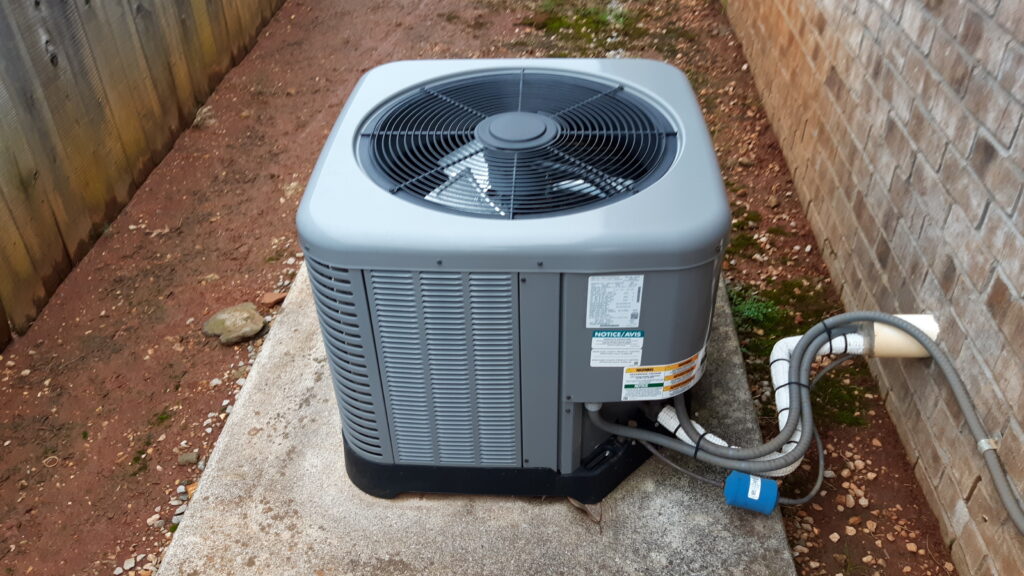
A new roof. A busted HVAC. A dental procedure that insurance barely touches. These are the financial earthquakes boomers dread. One big, sudden expense can throw off an entire year—or worse, unravel their carefully crafted retirement budget.
Unlike during their working years, there’s no “bonus” or “raise” to cover it. Emergency funds only go so far when everything seems to break at once. And credit cards? That’s a dangerous rabbit hole at their stage of life. Boomers may not talk about it, but they feel the weight of every creaky appliance and every funny noise their car makes. It’s not paranoia—it’s financial PTSD from decades of adulting. And now, without regular income, every unexpected bill feels like a potential crisis.
15. Losing Financial Control Due to Cognitive Decline

This one’s whispered about, not spoken out loud. Boomers worry—sometimes more than they admit—about what happens if their memory slips, their judgment fades, or they simply stop understanding the money stuff. Nobody wants to hand over the checkbook. But the reality is, cognitive decline can turn financial independence into a liability.
They’ve seen it happen to parents, neighbors, or friends: forgotten bills, unusual spending, and eventually, someone stepping in. It’s scary, vulnerable, and deeply personal. Boomers fear not just the loss of control—but the shame of having others see them as incapable. Some are quietly preparing power of attorney docs, just in case. Others are dragging their feet, hoping it never comes to that. But the fear is real. And it lingers with every missed password and every “why did I come into this room?” moment.
This article is for informational purposes only and should not be construed as financial advice. Consult a financial professional before making investment or other financial decisions. The author and publisher make no warranties of any kind.








